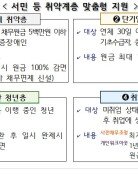Shorts, reels, and the real crisis after high ticket prices
Shorts, reels, and the real crisis after high ticket prices
Posted September. 07, 2024 07:17,
Updated September. 07, 2024 07:17
When a prominent Korean actor sparked controversy by claiming that high ticket prices were driving people away from theaters, I recalled a movie theater I visited in California this summer. It was a multiplex in a large shopping mall, screening a new Disney release, but the audience consisted of just two groups—my family and a man with his child. Although it was a weekday daytime, I didn’t expect the theater to be so empty since it was summer vacation. The contrast between the empty theater and the lively dialogue from the animated film created an eerie atmosphere.
The theater industry's decline isn’t exclusive to Korea. According to market research firm ComScore, North American box office revenue barely surpassed 9 billion U.S. dollars last year. Despite recovering somewhat from the pandemic with hits like Barbie, the industry has shrunk by 20% compared to 2019 and 24% compared to 2018. Was it because of ticket prices, as the controversy suggested?
In the U.S., movie ticket prices rank in the middle among the top 20 GDP countries. According to sources, last year’s U.S. average was 10.78 dollars. Adjusted for income, it ranks even lower. A report by the Korean Film Council found that it takes 46 minutes of minimum-wage labor to afford a movie ticket in the U.S., much less than Korea’s 66 minutes, middle of the five countries surveyed, including Japan, China, and France. This suggests that even without high ticket prices, audiences have been dwindling.
In Korea, ticket prices also come with many discounts. While the nominal weekend price is 15,000 won, telecom discounts are common, and the actual average ticket price in the first half of 2024 was 9,768 won, a 3.1% drop from last year.
Blaming ticket prices is an easy but short-sighted explanation. In an era of value-based consumption, where consumers choose where to spend based on personal preferences, it seems natural that struggling theaters can’t be solely attributed to ticket prices. As Japanese writer Toyoshi Inada explains in “People Watching Movies on Fast-Forward,” the rise of short-form content such as shorts and reels has shifted culture from something to “appreciate” to something to “consume,” making cost-effectiveness the single most dominating factor. In an era overflowing with content summarizing a plot in under 10 minutes, movie theaters, where you have to sit through a film for two hours, have become spaces that offer poor value—not just in terms of money but also time and opportunity cost.
Movies differ from plays, which cannot be experienced at the viewer’s discretion, and books, where the reader decides the pace. In an age of abundant content but limited time, fast-forwardable alternatives flood the market for those who view passive theater experiences as inefficient, changing how we enjoy films.
Ironically, moviegoers' expectations have risen—they go to theaters only when they’re confident the movie is worth watching without fast-forwarding or skipping. In a world where instant gratification and efficient content dominate, the real question isn’t about ticket prices but how much movie theaters are offering unique experiences with distinctive, compelling films. Addressing this may be more critical to reviving the industry than the ticket price debate.







